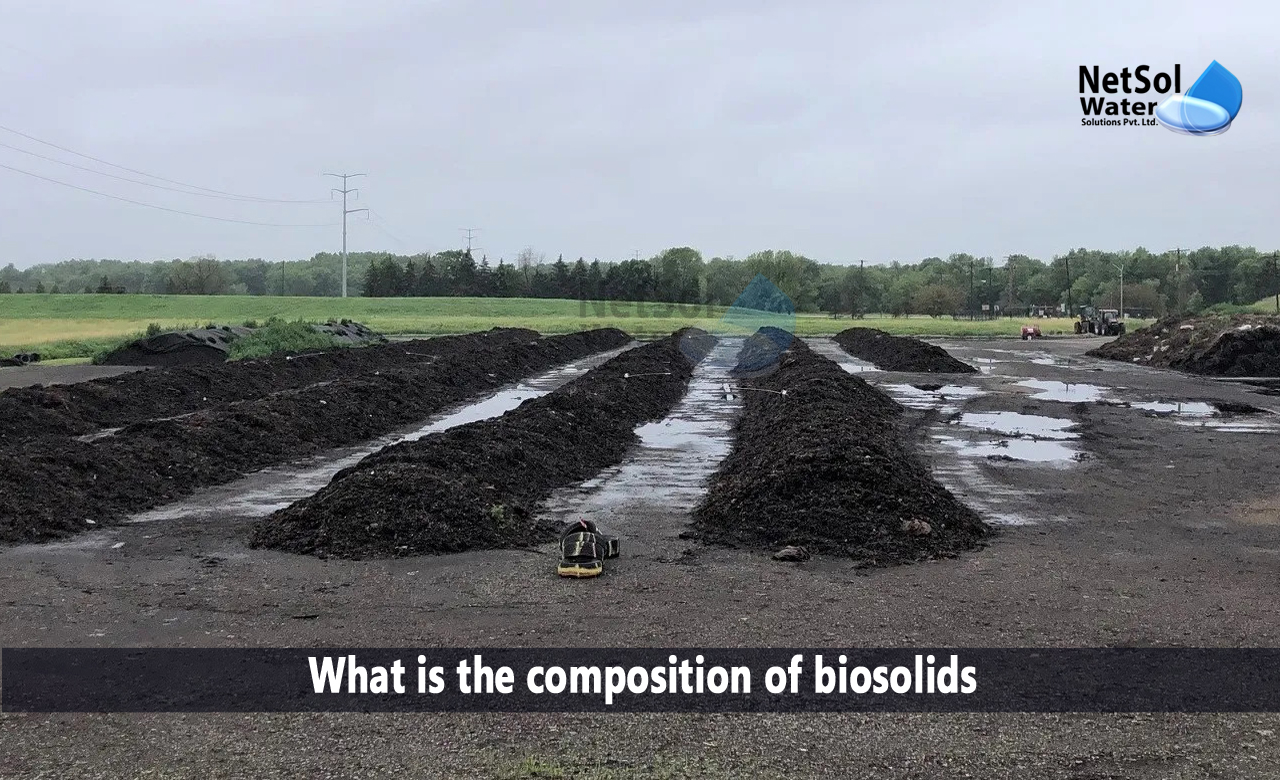Water, organic matter, macro and micronutrients, and potentially hazardous substances including metals and organic compounds, make up the majority of biosolids.
Domestic wastewater produced by sewage treatment facilities is treated to produce biosolids. In fact, biosolids treatment can start even before the wastewater is sent to a sewage treatment facility.
Let’s look at the composition of biosolids.
What is the composition of biosolids?
Wastewater sludge, a by-product of the sewage treatment process, and largely a mixture of water and organic components, is used to make biosolids. The following may be present in bio-solids:
1. The macronutrients include substances like nitrogen, phosphorous, potassium, and sulfur.
2. Micronutrients include things like copper, zinc, calcium, magnesium, iron, boron, molybdenum, and manganese.
Biosolids may also contain traces of metals and synthetic organic compounds, including arsenic, cadmium, chromium, lead, mercury, nickel, and selenium. The extent to which biosolids can be used is constrained by these pollutants, and all applications are subject to regulation by the proper state and federal authorities. After going through treatment, a product is stabilized and ready for usage.
Metal concentrations in biosolids
Typically, concentrations are expressed in milligrams per kilogram (mg/kg) or parts per million (ppm). These two units of measurement are interchangeable.
Compare the concentrations of the biosolids that the wastewater treatment facility will supply to your farm, with those in the below table before using them on your farm.
The wastewater treatment plant should give you information on the total amounts of metals applied over time, and the legal limitations if the metal concentrations in the biosolids are higher.
|
Metals Limits for Class A Biosolids |
|
|
Restrictions on the concentration of pollutants under Indian regulations. Metal concentrations in biosolids shouldn't build up to dangerous levels for human health, below these limitations. |
|
|
Pollutant |
Monthly Average Concentration (Mg/Kg) |
|
Arsenic |
41 |
|
Cadmium |
39 |
|
Copper |
1500 |
|
Lead |
300 |
|
Mercury |
17 |
|
Nickel |
420 |
|
Selenium |
100 |
|
Zinc |
2800 |
Note that:
The table does not contain molybdenum. Molybdenum in biosolids appropriate for land application has a 75 mg/kg upper limit, imposed by the 504 rules. Molybdenum does not yet have a pollution limit.
In the original 503 standards, molybdenum had a pollutant limit of 18 mg/kg. Studies revealed molybdenum posed minor harm to animals, hence, the pollutant restriction was eliminated.
Conclusion
Municipal biosolids quality is ensured by stringent regulations on wastewater discharge to sewers. Therefore, pre-treatment equipment installation is required for particular sectors, in order to eliminate potentially dangerous contaminants, before they can enter the wastewater treatment facility. Operators who handle wastewater must closely watch the biosolids-producing processes.
How can we assist?
For local authorities and operators, the growing amount of biosolids generated by wastewater treatment, in tandem with population growth and urban sprawl, is a major source of concern. Biosolids treatment is now required in order to recover products and reduce volume.
Netsol Water assists you in defining and selecting the best biosolids treatment option for you, according to:
· the sludge's composition, where it came from, and
· where it will end up after treatment (recycling, recovery, disposal)
For further information or to make a purchase of advanced water and wastewater treatment plants, please contact us at +91-9650608473 or enquiry@netsolwater.com



